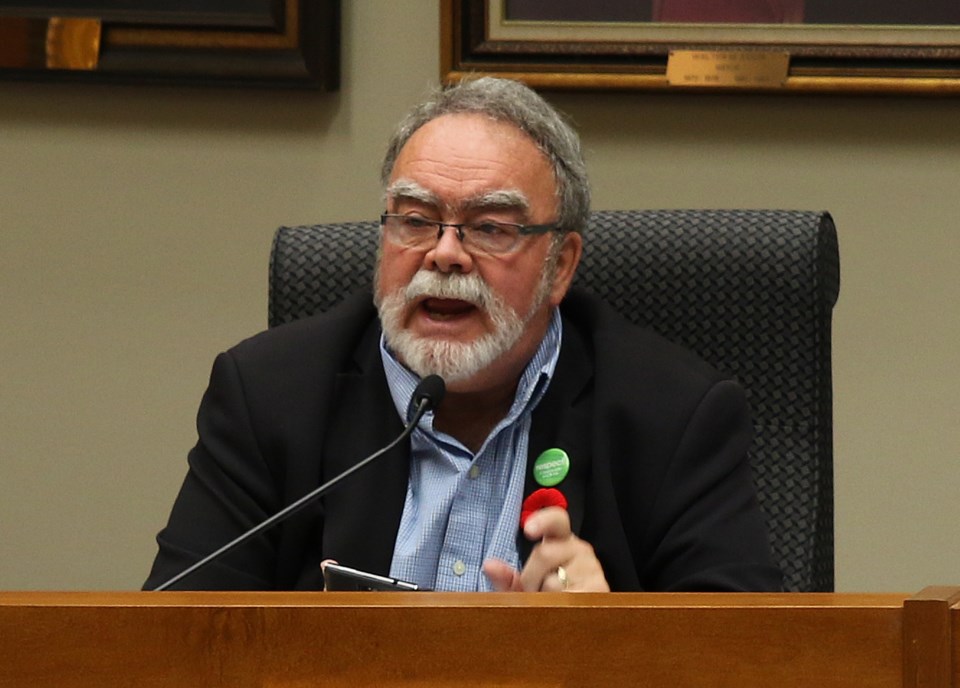THUNDER BAY -- A debate over a program mostly related to children's nutrition unraveled into a two-hour divisive debate at Monday's city council meeting.
Council ultimately committed to picking up $76,000 in costs to continue all aspects of the Community Social Reinvestment Program in 2018.
But some councilors were left feeling they'd been put in the position of either supporting a levy increase or voting against basic necessities for local children in poverty.
Food security and nutrition programs make up 71 per cent or $418,000 of the Thunder Bay District Social Services Administration Board's $590,000 CSRP program in 2016. The remainder pays employment supports for parents and offsets the cost of youth recreational activities through organized sport. Fifty-four per cent of the programs are based in Thunder Bay.
Reductions in the Ontario Municipal Partnership Fund will create an 18 per cent gap that the DSSAB's 15 member communities would have to vote to fill.
"The program is very important to a lot of the smaller communities. We need to show we're prepared to support them," said Coun. Iain Angus.
"Had we voted no, it would have been dead."
Because the CSRP is a non-essential program through the DSSAB, it needs to be supported by a double majority, meaning 9 of the 15 communities need to vote in favour for it to continue.
Administration urged council not to commit to the program, as it's deemed non-essential, there may be some duplication in services, and staff cautioned council against filling in where the province leaves off.
"Administration's recommendation had nothing to do with the value of the services being provided. All the organizations provide very good services to the community," said corporate services general manager Rob Calquhoun.
"The reason is, it's not on our budget and it was a form of provincial downloading."
Neebing Coun. Linda Rydholm felt caught between not providing services or having to go cap-in-hand to the province, asking it to upload a program the city already accepted it would fund.
"I certainly agree with our staff that it looks like the province is downloading onto the municipalities but how can we afford not to fund food?" Rydholm asked. "What a place to be in."
Other councilors didn't accept the vulnerability of that position. Coun. Rebecca Johnson called on the six councilors who sit on the DSSAB to send their board a flat rejection.
“This city shouldn’t be paying this extra money. I’m looking at this administration who have worked very very, very hard to get our negative variance to virtually zero for this year. They’re working very very, very hard to try to figure out how to come up with a budget that’s going to be palatable to this community for next year," Johnson said.
“Ladies and gentlemen from DSSAB who sit around this table that are on that board, go back there and tell them our community can’t afford that. You've got to figure it out from the DSSAB budget.”
Mayor Keith Hobbs likewise withheld his support in a protest vote. He cited the North West Local Health Integration Network (LHIN)'s recent announcement that it will be supporting a 10-bed managed alcohol program in Kenora when Thunder Bay has been asking it to fund its 15-bed program to support a city eight times larger. It was his last straw.
"I think it's absolutely ridiculous," Hobbs said.
"It's time to hold the province's feet to the fire to look after the marginalized people in this province. And the feds as well. It keeps coming down to the municipalities to do it. Enough is enough. On principle, I'm not going to support it."
Current River Coun. Andrew Foulds, who is also the vice principal of Superior Collegiate & Vocational Institute, countered Hobbs' protest.
"Although it frustrates me too, Mr. Mayor, I cannot let this go," Foulds said.
"In the education system, I can see the effects of poverty every day and it's devastating. This is one small, small way city council can help these young people in particular a hand."
McKellar Coun. Paul Pugh said he couldn't understand how anyone needed to wrestle with the moral issue but he also offered the fund's detractors a practical plea.
"The people in the district are getting this assistance so they can stay where they are. If we don't help them to stay where they are, they're not going to move to Vancouver. They're not going to move to Montreal. They're not going to move to Toronto or even move to Winnipeg. They're coming here," he said.
"So even if morally, you couldn't care less about the poor of the district, you should at least care about whether they're going to stay where they are or whether we're going to have more poor people in Thunder Bay."
Angus expects the final results of municipalities voting to accept or reject the expense will be complete by December.
